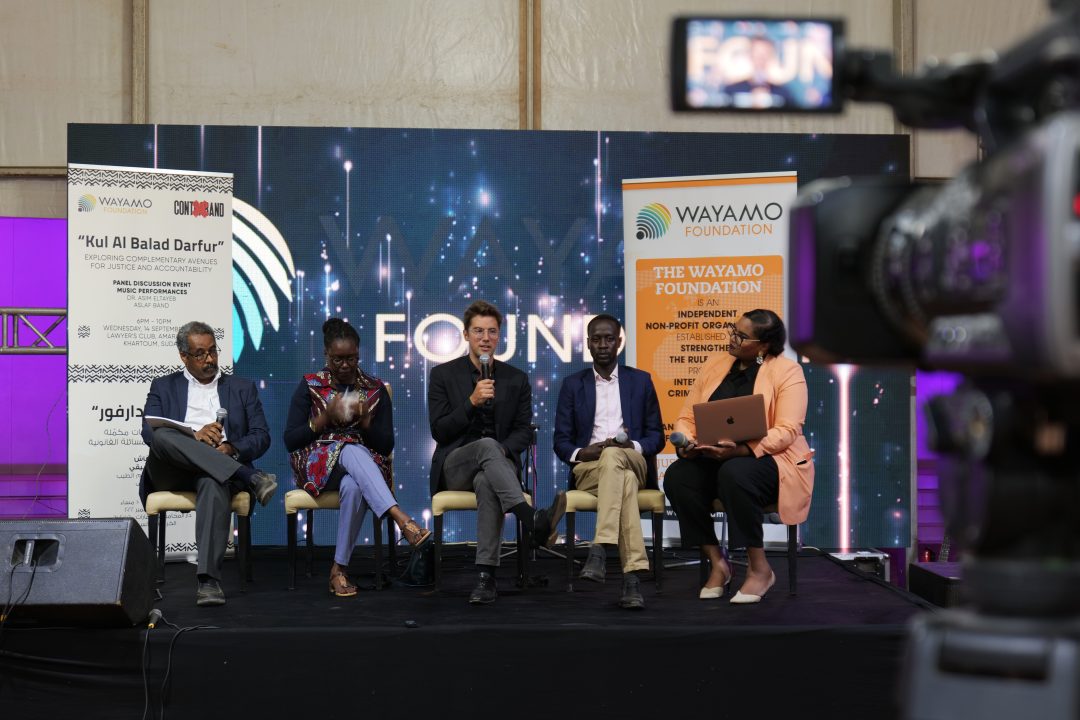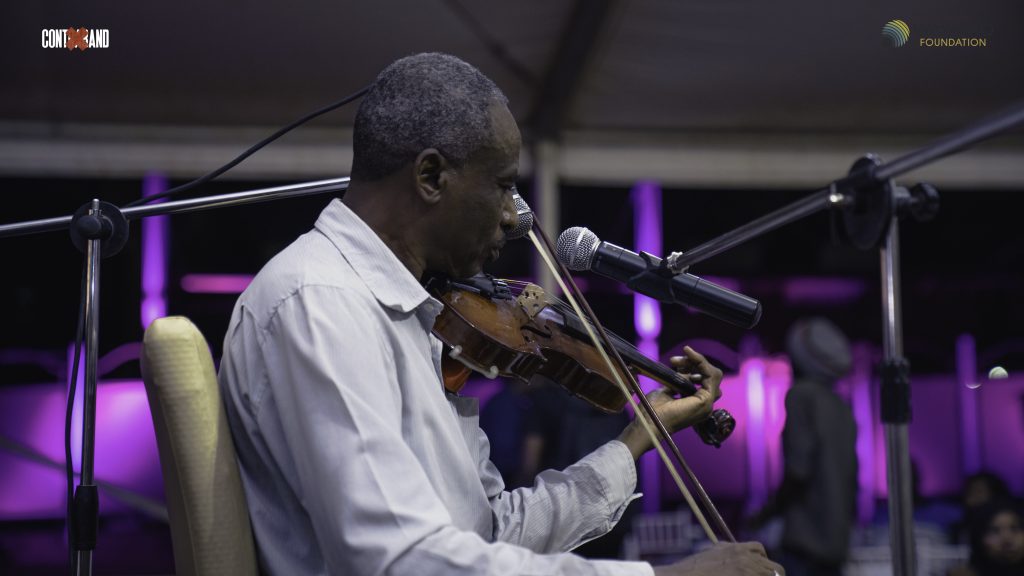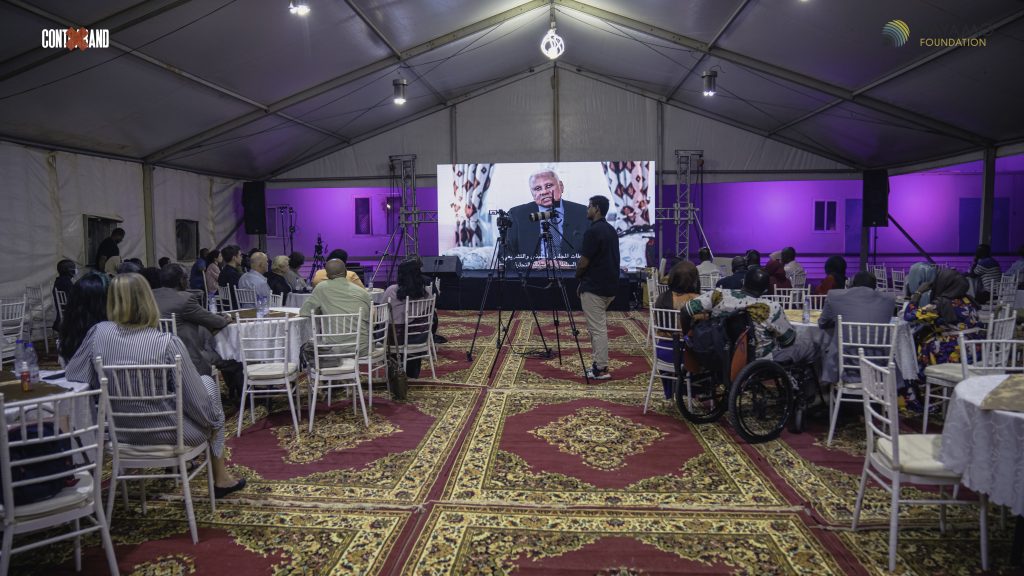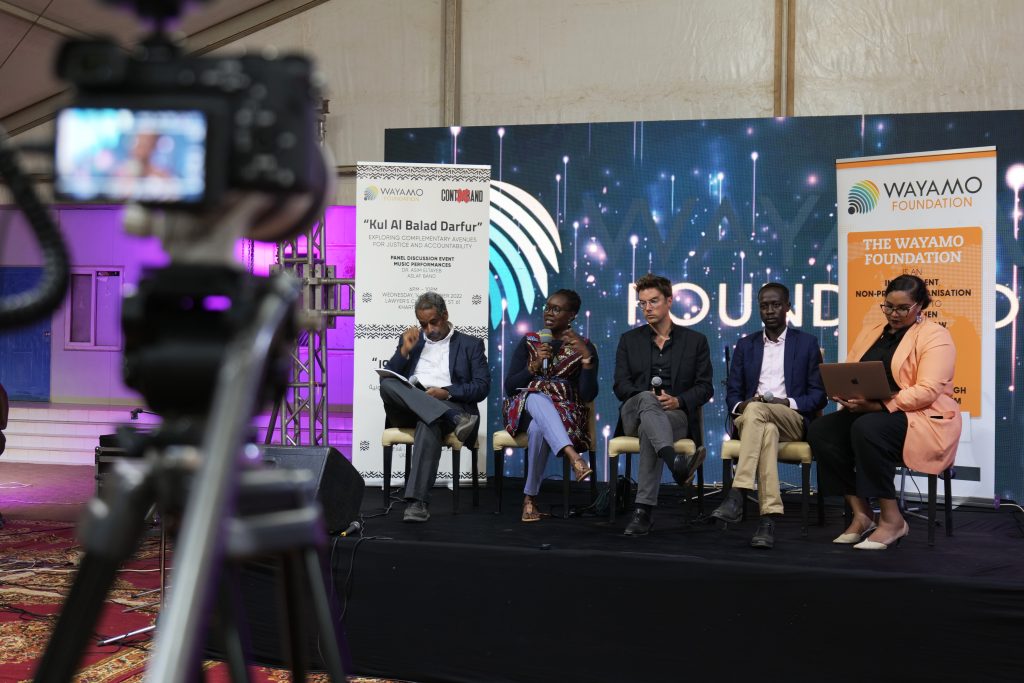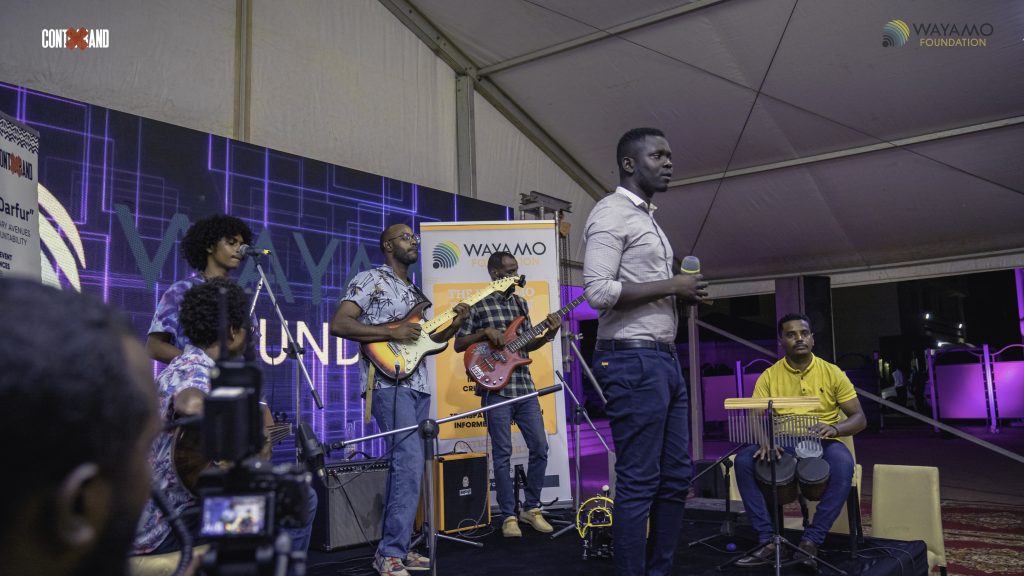Within the framework of its “Capacity building for civil society and the justice sector in Sudan” project, the Wayamo Foundation organised a mission to Khartoum from 8 to 15 September 2022.
Series of broad consultations with key stakeholders
Over the course of the week, the Wayamo delegation met with key stakeholders working in the field of justice and accountability in Sudan, including civil society organisations (CSOs), lawyers, academia, women’s organisations, journalists, and the diplomatic community. The delegation sought to understand the challenges and priorities surrounding achievement of justice and accountability in the country. Wayamo discussed the most pressing justice needs in Sudan as well as capacity-building programming for Sudanese CSOs, the legal community and journalists.
“Kul Al Balad Darfur – Exploring complementary avenues for justice and accountability”
Click here for all the pictures of the event.
On 14 September 2022, the Wayamo Foundation and Contraband held a cultural event in Khartoum, entitled “Kul Al Balad Darfur – Exploring complementary avenues for justice and accountability”. More than 120 participants from CSOs, embassies, universities and research centres, regional organisations, youth groups, Sudanese political groups and reporters attended an evening of music and conversation on justice and accountability in Sudan.
The event started with “Music for Peace”, featuring songs from South Kordofan and Darfur by music professor, Aseem al-Tayeb. The event was officially opened by Ahmed Dafalla, Founder of Contraband and Bettina Ambach, Director of the Wayamo Foundation. Their welcoming remarks were followed by video messages from Mohamed Chande Othman, Former Chief Justice of Tanzania and Chairperson of the Africa Group for Justice and Accountability, Adama Dieng, UN Designated Expert on human rights in Sudan, and Yaqoub Muhammad Abdullah Fawry, Head, General Coordination Committee of Displaced Persons and Refugees in Darfur.
The debate then began with a panel discussion, featuring Mikel Delagrange, International Criminal Justice and Victims’ Expert, Wayamo, Linda Bore Kamp, International Criminal Justice lawyer and project coordinator, Wayamo, Abdalbasit Mohamed, Legal and Research Officer, Wayamo, and Dr. Mohamed Abdelsalam Babiker, Associate Professor of international law at the University of Khartoum and founding Director of its Human Rights Centre. The moderator of the conversation, Kholood Khair, Founder and Director of Confluence Advisory, invited the panellists to reflect on justice and accountability in Sudan and the role of CSOs.
The Q & A session that followed the panel presentations was characterised by constructive and critical comments and questions, something that was warmly welcomed by the organisers and perceived as a good sign for future events of this nature and a culture more disposed to the traditional give-and-take of open discussion.
The event ended with a performance by the ASLAF Band, a traditional Afro-Sudanese group, promoting, preserving, and advancing the country’s musical heritage.
Informal meetings with the justice sector and women’s organisations
On 15 September 2022, Wayamo held informal meetings with the justice sector to discuss the challenges and priorities surrounding achievement of justice and accountability in the country. Another meeting was organised with representatives of women’s organisations, on conflict-related sexual violence in Sudan and their training needs.
Based on these consultations, the Wayamo Foundation will now fine-tune and finalise its capacity-building programmes and activities relating to justice and accountability efforts in Sudan, taking into account the needs identified by Sudanese beneficiaries.
Capacity building for civil society and the justice sector in Sudan
The “Capacity building for civil society and the justice sector in Sudan” project aims to strengthen the capacity of civil society and legal actors in Sudan as they participate in the transitional justice process. Individuals will be trained in international criminal law, international humanitarian law and human rights, and will be given the knowledge required to handle serious-crime cases that come before the courts, in a manner that is both competent and effective.

